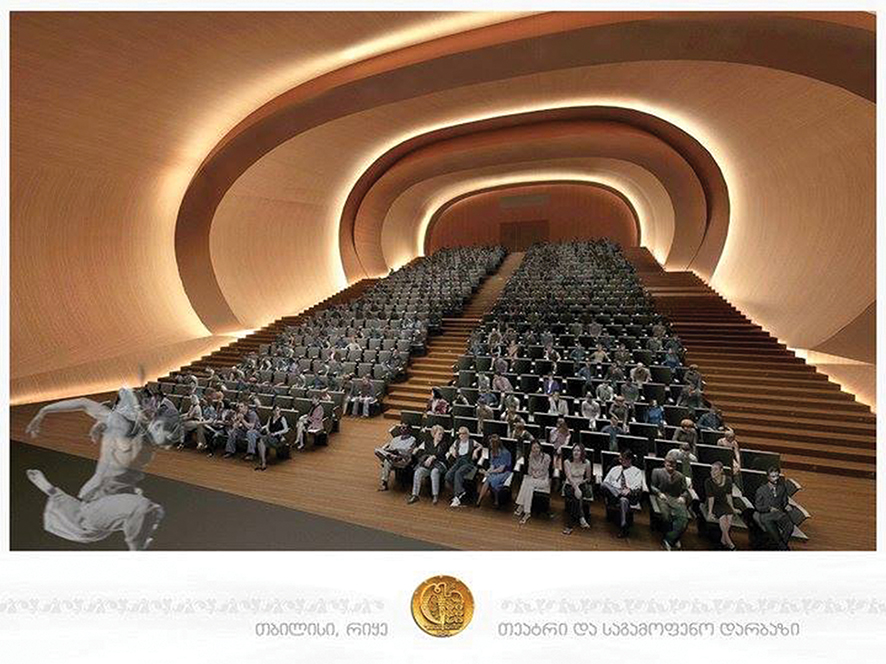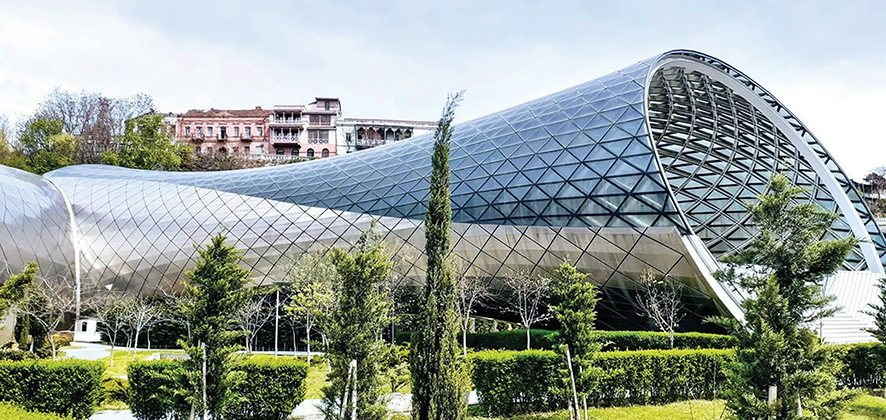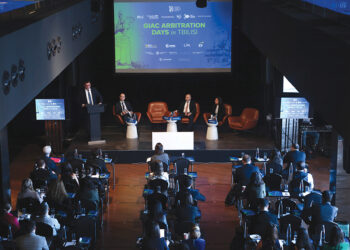Tbilisi City Hall in May announced plans to dismantle the so-called “Rike Jars,” the twin glass-and-steel structures located in Rike Park, near the Bridge of Peace. Mayor Kakha Kaladze described the buildings as “dysfunctional” and “untidy,” asserting that they no longer align with the city’s urban development goals. He emphasized the need for a new project of similar scale that would be both functional and aesthetically fitting for the area.

Kaladze said that while the exact nature of the replacement project is still under consideration, one possibility is a hotel development. He said that any new construction would remain within the existing footprint of the current structures, and assured the public that no additional green space would be sacrificed.
The Rike Jars, also known as the Rike Concert Hall and Exhibition Center, were emblematic of the wave of modernist architecture introduced during the early 2010s. They were designed by the internationally renowned Italian architecture firm Studio Fuksas, led by Massimiliano and Doriana Fuksas. Commissioned during the presidency of Mikheil Saakashvili in the early 2010s, the project was part of a broader push to modernize Tbilisi’s image through bold, contemporary architecture—alongside landmarks like the Bridge of Peace and the Public Service Hall. Located in Rike Park, in the heart of the city, the twin glass-and-steel structures were envisioned to serve distinct purposes: one as a concert hall, the other as an exhibition space. Their ambitious design quickly became a symbol of both contemporary aspiration and governmental overreach, with critics pointing out their chronic underuse and lack of integration into the urban fabric. The buildings have stood mostly empty for years, their gleaming façades gradually weathering into monuments of unrealized potential.

Yet the public reaction to City Hall’s demolition announcement has been mixed, shaped by a deepening mistrust in how Tbilisi’s public spaces are managed and repurposed. Many remember the Vake Park scandal of 2013–2014, when the city approved plans for a private luxury hotel in one of the capital’s largest and most beloved green spaces. The project, widely criticized as an encroachment on public land, ignited waves of protest and legal action. After years of pressure from civil society, courts ultimately ruled in favor of protecting the park — a rare but hard-won victory for urban environmental advocates.
This lingering memory now casts a long shadow over any promise of “non-expansion” into park territory. Activists and local residents have expressed concerns that the Rike area — a rare stretch of downtown greenery on the left bank of the Mtkvari — could become yet another battleground between public interest and private development.
It’s not just about aesthetics or architectural taste. It’s about our right to green public space, to transparency, and to being heard in decisions that affect the city we live in – Nata Peradze, co-founder of Guerrilla Gardening Tbilisi
“It’s not just about aesthetics or architectural taste,” said Nata Peradze, an environmental activist and co-founder of Guerrilla Gardening Tbilisi, one of the leading groups that opposed the Vake Park hotel project. “It’s about our right to green public space, to transparency, and to being heard in decisions that affect the city we live in.”
Irakli Jugheli, a lawyer involved in the Vake Park legal battle, noted that allowing a hotel to be built in the park would undermine its official designation as a recreational zone.
So far, City Hall has not released a detailed timeline for the demolition of the Rike Jars, or a design proposal for what will replace the iconic structures.
As Tbilisi continues to balance its growing aspirations with its fragile civic memory, the fate of Rike Park may once again become a litmus test for the city’s urban democracy.
More on The Vake Park Hotel Controversy
The Vake Park hotel controversy in Tbilisi, which unfolded between 2013 and 2019, was a significant episode in Georgia’s urban development history. It centered on the proposed construction of the “Hotel Budapest” within Vake Park, one of the city’s oldest and most cherished recreational areas.
In July 2013, then-Mayor Gigi Ugulava authorized a special zoning agreement allowing for the construction of a hotel on a plot within Vake Park. Subsequently, in September 2013, a building permit was issued for the project. The investor, Tiflis Development, purchased the land, which had previously housed a restaurant of the same name, for ₾2.7 million ($1 million).
The decision sparked widespread public outcry. Environmental groups like Guerrilla Gardening Tbilisi and Green Alternative led protests, arguing that the construction would damage the park’s ecosystem and reduce green space in the city. Activists organized continuous demonstrations, including setting up protest camps in the park, and filed multiple lawsuits against the project.
In 2016, the Tbilisi City Court revoked the building permit, citing insufficient justification for the zoning change and lack of public consultation. However, the Court of Appeals later upheld the original decision, allowing the project to proceed.
After years of legal battles and public protests, a resolution was reached in January 2019. Tbilisi Mayor Kakha Kaladze announced that an agreement had been made with the investor to cancel the hotel project. The investor, Giorgi Zakaidze, accepted an offer from the city to relocate the project to a different area, effectively preserving Vake Park from development.
By Katie Ruth Davies














